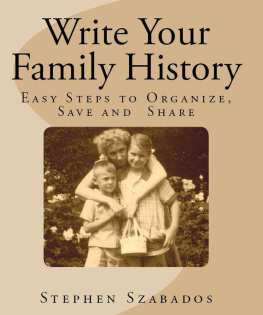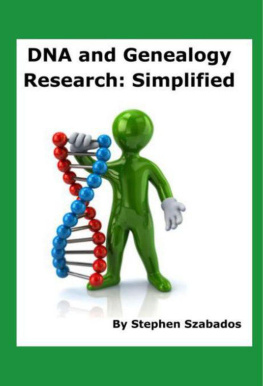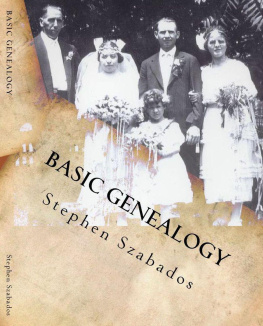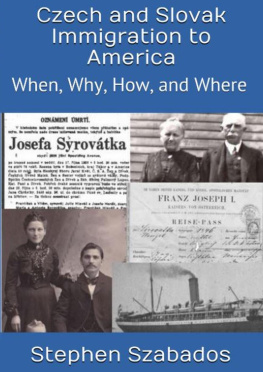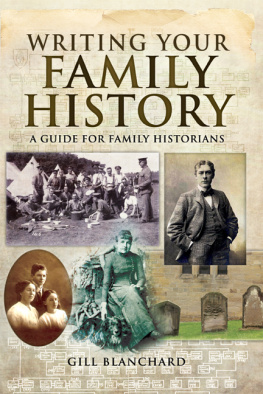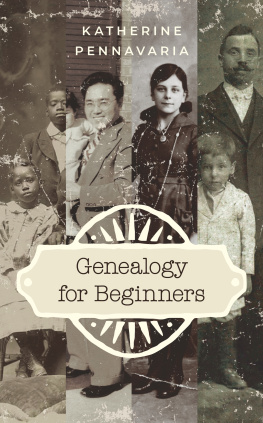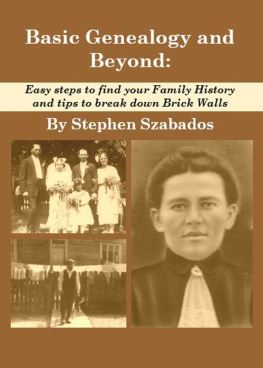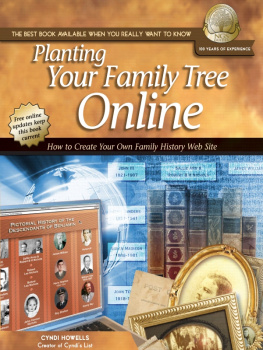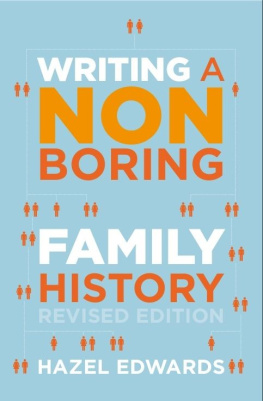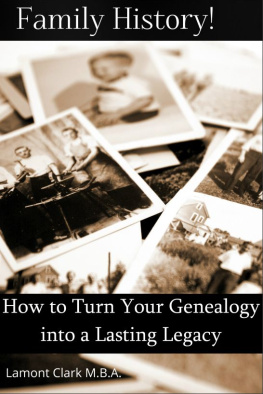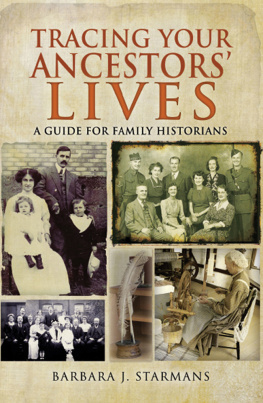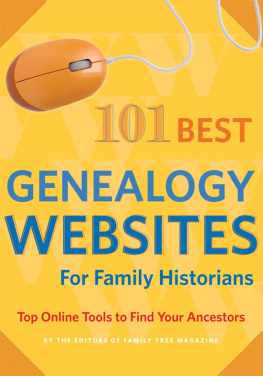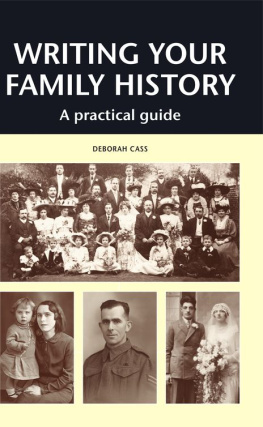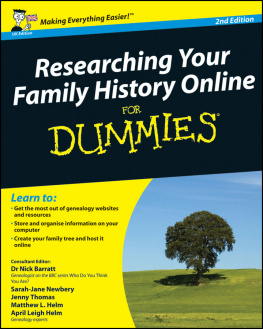Stephen Szabados - Write Your Family History: Easy Steps to Organize, Save and Share
Here you can read online Stephen Szabados - Write Your Family History: Easy Steps to Organize, Save and Share full text of the book (entire story) in english for free. Download pdf and epub, get meaning, cover and reviews about this ebook. year: 2020, publisher: Stephen Szabados, genre: Home and family. Description of the work, (preface) as well as reviews are available. Best literature library LitArk.com created for fans of good reading and offers a wide selection of genres:
Romance novel
Science fiction
Adventure
Detective
Science
History
Home and family
Prose
Art
Politics
Computer
Non-fiction
Religion
Business
Children
Humor
Choose a favorite category and find really read worthwhile books. Enjoy immersion in the world of imagination, feel the emotions of the characters or learn something new for yourself, make an fascinating discovery.
- Book:Write Your Family History: Easy Steps to Organize, Save and Share
- Author:
- Publisher:Stephen Szabados
- Genre:
- Year:2020
- Rating:4 / 5
- Favourites:Add to favourites
- Your mark:
Write Your Family History: Easy Steps to Organize, Save and Share: summary, description and annotation
We offer to read an annotation, description, summary or preface (depends on what the author of the book "Write Your Family History: Easy Steps to Organize, Save and Share" wrote himself). If you haven't found the necessary information about the book — write in the comments, we will try to find it.
Genealogy research should go beyond finding documents and filling in charts. Include the stories and pictures for your ancestors. Let come alive.
This book outlines a simple process that will aid your research and create pages of information that can be read and understood by all family members. Your research will become faster and more accurate, and your family can enjoy family history. We all have family stories that give insights into the lives of our ancestors. Some are entertaining, and others are more historical. Many others are celebrations of our ethnic and cultural heritage. They all should be saved and repeated for our future generations. However, pieces of these stories are lost as families pass them down from generation to generation. Writing a family history will save them for many generations.
Writing a family history can seem to be a very challenging project for many people. Hopefully, the methods discussed in this book will show the reader a simple format that will make this task much easier. You may be reluctant to write down these stories because you do not consider yourself a writer, or you cannot see how your family history is essential to save. However, you need to understand that someone in your family should capture and save the oral histories, do the research to try to confirm what the accurate story is and do the research to increase the knowledge of your ancestors lives.
All of our immigrant ancestors contributed to Americas history, and their stories should be saved for our grandchildren. Our family histories should give clues to their roles, and this will help us understand our roots. Your collection of family history, photos, and documents are incomplete unless someone writes an explanation of how they are related. This creates your unique family history and is the core of why someone needs to write them down for the enjoyment of your children and grandchildren. If you feel you do not have the skills to do this, who in your family can? If you like to do the research, is there someone that can work with you to write it? If you are interested in telling your family stories,
I hope that the materials in this book help you overcome your fears of writing, and you will commit the oral traditions of your family to the written word. I show how getting started with brief biographical summaries can make writing easier. Summaries help you overcome your fears of writing, I cover simple methods for organizing your summaries that can stand alone and then later combine all of the summaries into a larger document that becomes your family history. The book reviews a simple process that compiles oral history, family pictures, and genealogical documents and puts it together into a readable and interesting document that suddenly becomes your family history.
Stephen Szabados: author's other books
Who wrote Write Your Family History: Easy Steps to Organize, Save and Share? Find out the surname, the name of the author of the book and a list of all author's works by series.

